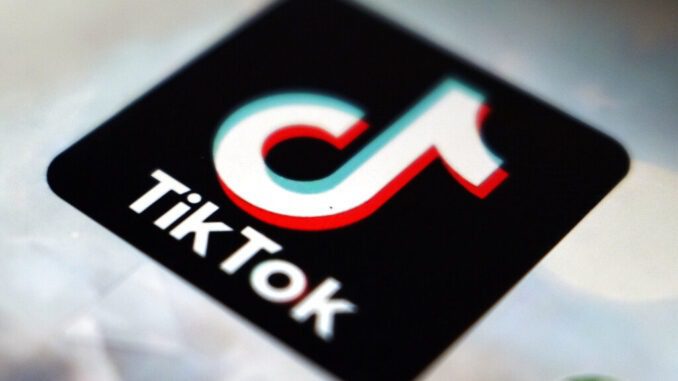
The Biden administration has “indefinitely” shelved a proposed U.S. takeover of the popular video app TikTok, according to a Wall Street Journal report. Last year, the Trump administration brokered a deal that would have had U.S. corporations Oracle and Walmart take a large stake in the Chinese-owned app on national-security grounds.
The unusual arrangement stemmed from an order by then-President Donald Trump that aimed to ban TikTok in the U.S. unless it accepted a greater degree of American control.
White House press secretary Jen Psaki did not deny the Journal report, but said Wednesday the Biden administration hasn’t taken a “new proactive step” in the process.
Psaki added that the Biden administration is comprehensively evaluating risks to U.S. data, including those involving TikTok. A review of TikTok by the Committee on Foreign Investment in the United States, which considers national security implications of such investments and has been reviewing the TikTok deal, is ongoing and has “expanded beyond TikTok,” Psaki said.
She did not offer a timetable for that process.
Trump targeted TikTok over the summer via a series of executive orders that cited concerns over the U.S. data that TikTok collects from its users. But courts blocked the White House’s attempted ban from going into effect, and the presidential election soon took precedence over the TikTok fight for Trump.
While President Joe Biden has said TikTok is a concern, his administration hadn’t said whether it will continue to try to ban TikTok or force a sale.
In September, Trump gave his tentative blessing to a proposal by TikTok’s Chinese owner ByteDance involving significant Oracle and Walmart investments in TikTok that would form a new U.S.-based company and hand management of the app’s U.S. user data to Oracle. CFIUS, however, has not completed its required review of the arrangement. A government deadline for TikTok to sell its U.S. operations has passed.
TikTok is now looking to the U.S. Court of Appeals for the District of Columbia Circuit to review Trump’s divestment order and the government’s national-security review.
TikTok and Oracle didn’t return requests for comment Wednesday. Walmart declined comment Wednesday and referred questions to the Biden administration.
The Treasury Department, which chairs the CFIUS agency reviewing the TikTok deal, did not reply to a request for comment. Neither did the Commerce Department, which last year had sought to enforce Trump’s orders, nor the Justice Department, which is handling the court challenges.
The Chinese government also required ByteDance to apply for an export license, but its stance toward the deal now is unclear. State media in September criticized the proposal as U.S. bullying and extortion.
Trump cited concerns that the Chinese government could spy on TikTok users if the app remains under Chinese ownership. TikTok has denied it’s a security threat but said it was still trying to work with the U.S. government to resolve its concerns.
TikTok said Oracle and Walmart could acquire up to a combined 20% stake in the new company ahead of a TikTok initial public offering, which Walmart said could happen within the next year. Oracle’s stake would be 12.5%, and Walmart’s would be 7.5%.
Where Oracle stood to handle data management, Walmart said it would provide ecommerce, fulfillment, payments and other services to the new company. TikTok said in a November court filing that the new entity, owned by Oracle, Walmart and ByteDance’s existing U.S. investors, would be responsible for TikTok’s U.S. user data and content moderation.
The Trump administration’s aggressive tactics were part of a broader effort to counter the influence of China. During his term in office, Trump waged a trade war with China, blocked mergers involving Chinese companies and stifled the business of Chinese firms like Huawei, a maker of phones and telecom equipment.



